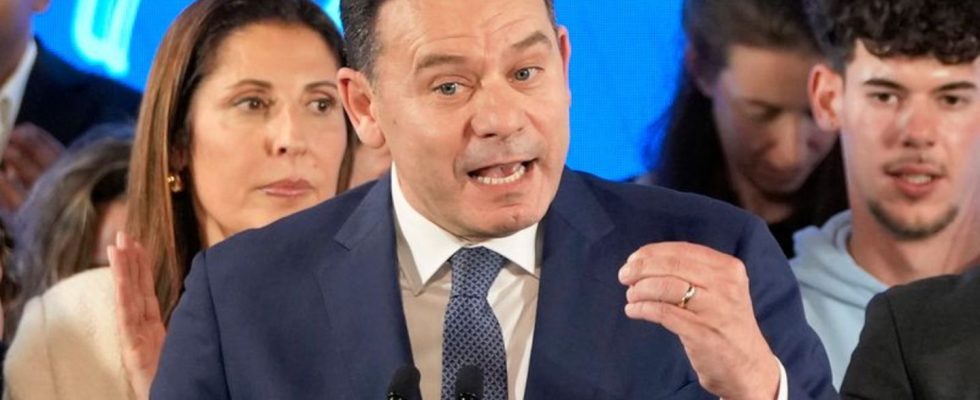Uncertain future
Portugal’s new minority government sworn in
Luís Montenegro does not have a majority in parliament. photo
© Armando Franca/AP/dpa
A new political era is beginning in Portugal. A conservative one. However, the new head of government, Luís Montenegro, does not have a majority in parliament. There is therefore uncertainty in Lisbon.
A good three weeks after the early parliamentary elections In Portugal, the conservative government of the new Prime Minister Luís Montenegro is officially in office. The trained lawyer and his 17 ministers took the oath of office in front of Head of State Marcelo Rebelo de Sousa on Tuesday evening in the Ajuda Palace in Lisbon.
The first cabinet meeting of the minority government that emerged from the vote on March 10th will take place on Wednesday. Montenegro called on the opposition to “let the new government work.” “We look to the future with hope,” said the 51-year-old.
First test
But there is uncertainty in Lisbon. The first test for Montenegro is coming up in just one and a half weeks. Then he has to present his government program to parliament. This will be debated and voted on on April 11th and 12th. If the program is rejected, the EU country faces a blockade and another election.
The conservative Democratic Alliance (AD) of Montenegro received the most votes on March 10th and narrowly defeated the Socialists (PS), who have been in power for over eight years, but clearly missed an absolute majority. The AD only has 80 of the 230 seats in the “Assembleia da República”. Rebelo de Sousa nevertheless appointed Montenegro as head of government.
The big winner of the election is André Ventura’s right-wing populist party Chega (Enough), which Montenegro and other critics classify as racist. It was able to more than quadruple the number of its mandates – from 12 to 50 seats. This makes it the third strongest force behind the Socialists of the previous head of government, António Costa. However, Montenegro has ruled out cooperation with Chega. A “grand coalition” between conservatives and socialists is considered impossible in Portugal due to irreconcilable differences.
Report on the state TV channel RTP

